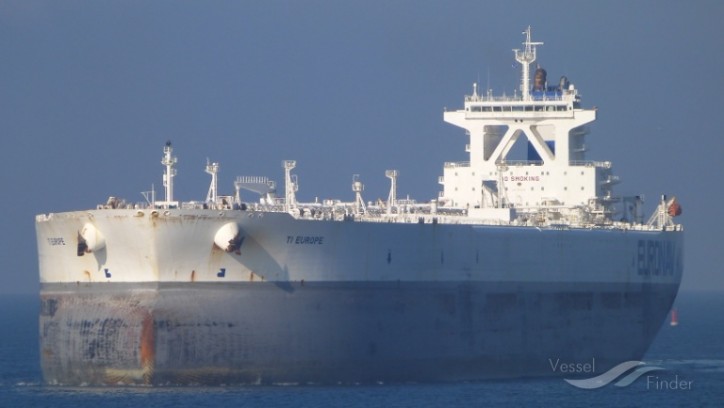Norway’s Statoil ASA has chartered the last remaining Ultra-Large Crude Carrier (ULCC), the world’s largest oil tankers, to store oil off of Malaysia for distribution in smaller parcels to its clients in Asia, company executives said.
Statoil has booked the TI Europe, capable of carrying up to 3 million barrels of oil, more than the daily consumption of South Korea, to reduce the time it takes for customers to ship their crude, Stale Endre Berg, senior vice president of crude and refining at Statoil, told Reuters on the sidelines of the APPEC conference.

The time charter of the ship comes despite the market structure for Brent crude futures flipping into backwardation, when spot prices are higher than for later delivery. The structure means the value of the crude declines over time and incentivises traders to sell their oil held in storage quickly.
“Our strategy in Asia for crude has been to basically make long-haul barrels available on a short-haul basis to bring flexibility to customers in Asia,” said Berg.
“Most refiners, in a backwardated market, cherish a three-day sailing of an Atlantic basin grade than 70 days from North America.”
TI Europe yesterday received crude from the Very Large Crude Carrier (VLCC) Athenian Victory via a ship-to-ship transfer in the Strait of Malacca.
The Athenian Victory loaded Angolan crude at the end of August.
In addition to African crude, Statoil also sends North Sea and oil from the Americas to Asia. The company declined to say how long it will charter TI Europe for.
There are more than 30 oil tankers off Malaysia that are used as floating storage for crude and fuel oil blending and distribution across Asia.
Low freight rates and affordable capital in most markets where Statoil operates also incentivised the company to look at floating storage, Berg said.
“In a contango market, life is easier. In a backwardated market, you’ll have to churn and have to have a higher frequency through your activity,” he said.
Oil prices have risen to their highest since 2015 because of stronger than expected global oil demand and production cuts by the Organization of the Petroleum Exporting Countries and some non-OPEC producers.
The TI Europe, owned and managed by Euronav NV, is one of four ULCC vessels built in the early 2000s. The TI Asia and TI Africa were converted to floating offshore production platforms for the Al-Shaheen oil field offshore Qatar. The TI Oceania is currently stationed offshore Oman.
Source: Reuters